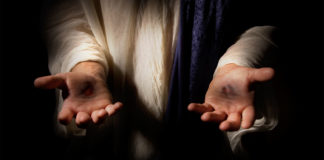Miracles or superstition? | An a posteriori response to the anti-supernaturalist assumption
Up until the Enlightenment, the idea that the miracles recorded in the pages of the Bible happened as the biblical writers described them was widely accepted. With the rationalism of the seventeenth and eighteenth centuries, an alternative theory emerged: that miracles were not possible in naturalistic metaphysics.
My stellar moments
It is said that God works through people. I am convinced that the people evoked in connection with my stellar moments—and I really would have liked to name them all—each contributed, in their own way, to my reunion with Divinity.
They took up the cross and killed
The first eight days of the Council of Clermont were difficult. Although the participants were apparently discussing the reform of the clergy, or the excommunication of King Philip for adultery, the real focus of attention was the announced speech of "general interest" by Pope Urban II. Little did the prelates and important Frankish nobles present know that they were about to witness one...
A tsunami put under a microscope
In 2004, we experienced firsthand one of the most devastating tsunamis of our century. It was early morning, on Boxing Day.
Can I trust the Bible?
The Bible is not the product of an event or a circumstance, but of time, study and especially of the journey that humanity took on its way to its development. But could it be that all the time that has passed has also eroded its relevance? How much confidence can we still have in the Bible, in the 21st century?
So you’re church-shopping…
Have you ever seen the early morning worship programs on television? The packed congregations, the huge church venues, the smooth-talking evangelist who delivers the perfect sermon . . . Church seems to be where the action is. That there are so many new mega-churches popping up all over the world suggests that a lot of people are desperate for spiritual guidance and fellowship....
Jumping High: The one who inspired me at the Olympics
What does it take to be the best? Most people will tell you it’s a combination of hard work and talent. Ask Australian high jumper Nicola McDermott, however, and you’ll quickly realise it’s a mental thing. It’s absolute belief that you can achieve whatever you set your mind to.
A year of waiting
For me, 2022 was the year of waiting—a word that managed to define our lives, thoughts and actions to an unexpected degree.
The manger, the sign of humility that elevates (us)
"This will be a sign to you: You will find a baby wrapped in cloths and lying in a manger" (Luke 2:12).
The splendour of existence
"From one man he made all the nations, that they should inhabit the whole earth; and he marked out their appointed times in history and the boundaries of their lands. God did this so that they would seek him and perhaps reach out for him and find him, though he is not far from any one of us" (Acts 17:26-27).
Three times the world nearly ended
Many doomsayers have “cried wolf” when it comes to the end of the world. Does that mean it’s not going to happen at all?
What do you do when you reach the end of love?
When I'm tired I can't love! Many times I have lived this reality and even assessed it as the exact end of love.
The cry of contrasts
It is the spring of 31 A.D., halfway through the 70th prophetic week of Daniel 9:24. This passage from the book of Daniel predicts that between the command to build the city of Jerusalem—in the autumn of 457 BC—and the appearance of the Anointed One (the Messiah), 69 prophetic weeks or 483 years (a prophetic day corresponding to a calendar year, according to...
The perfect Christmas present
Doing things the way you've always done them is the most convenient choice. I realized this on the eve of my birthday, when it became clear to me that snowballing into the same pattern of celebrations begins to gradually, but surely, lose its flavour.
“I do believe; help me overcome my unbelief!”
I was born into an Adventist family. This meant feeling that pretty much everything I knew, including my religious tradition, was the sole truth.


























